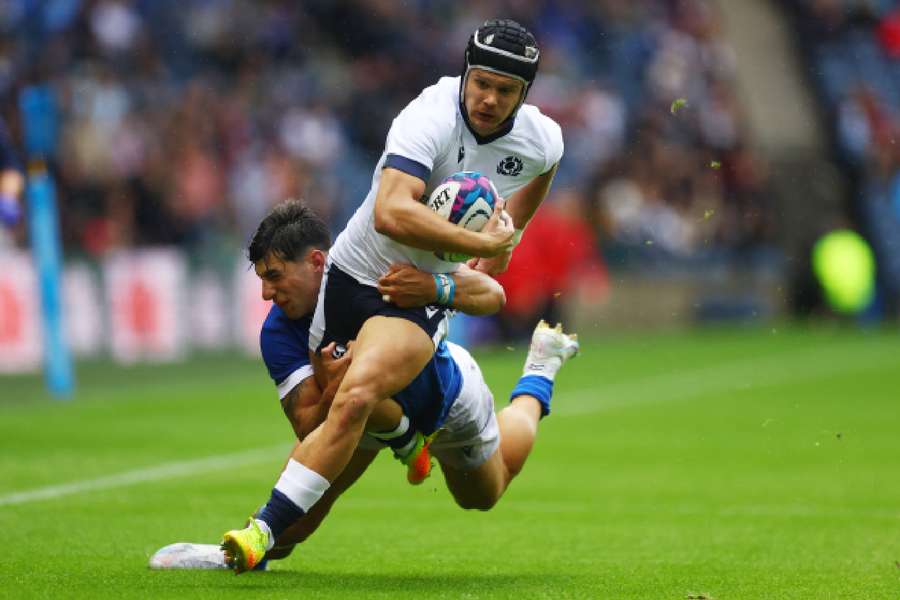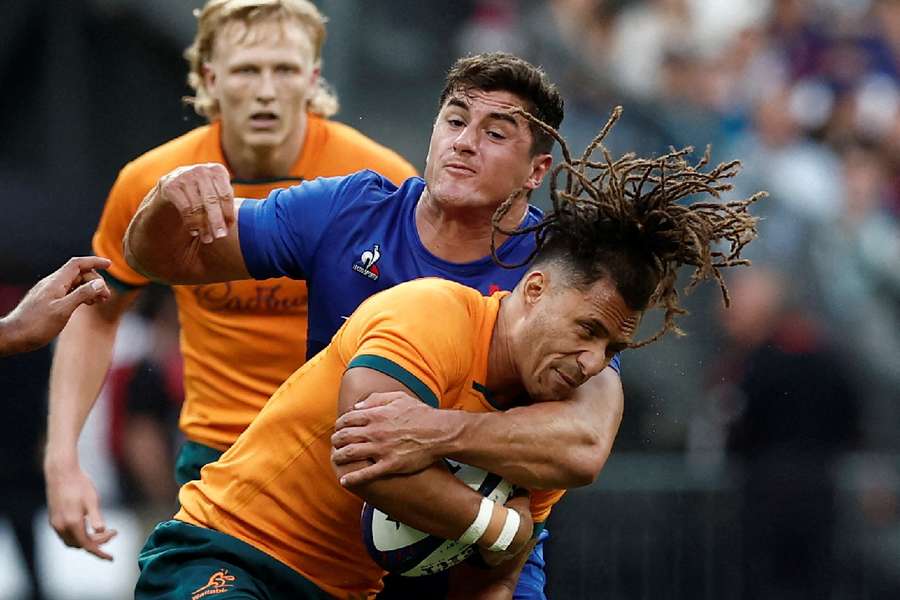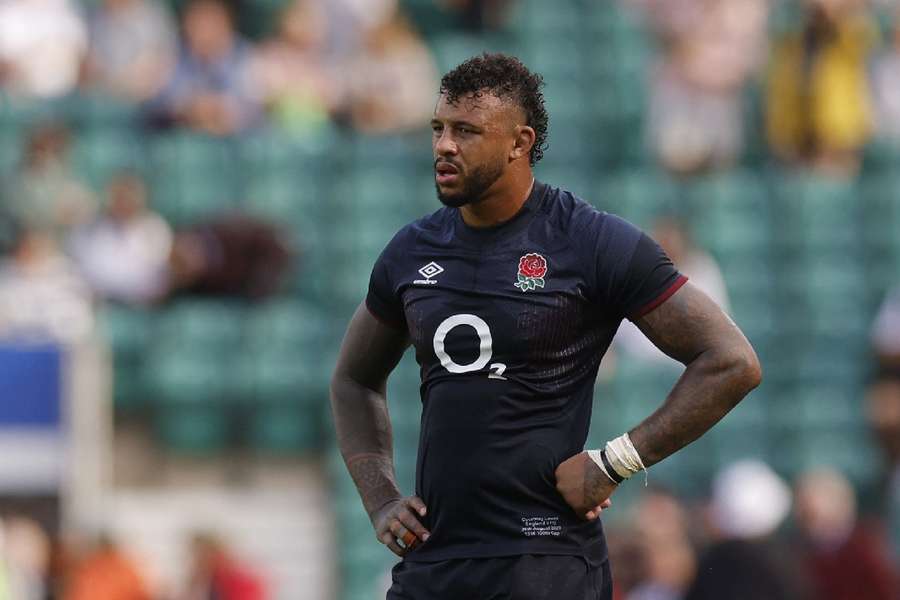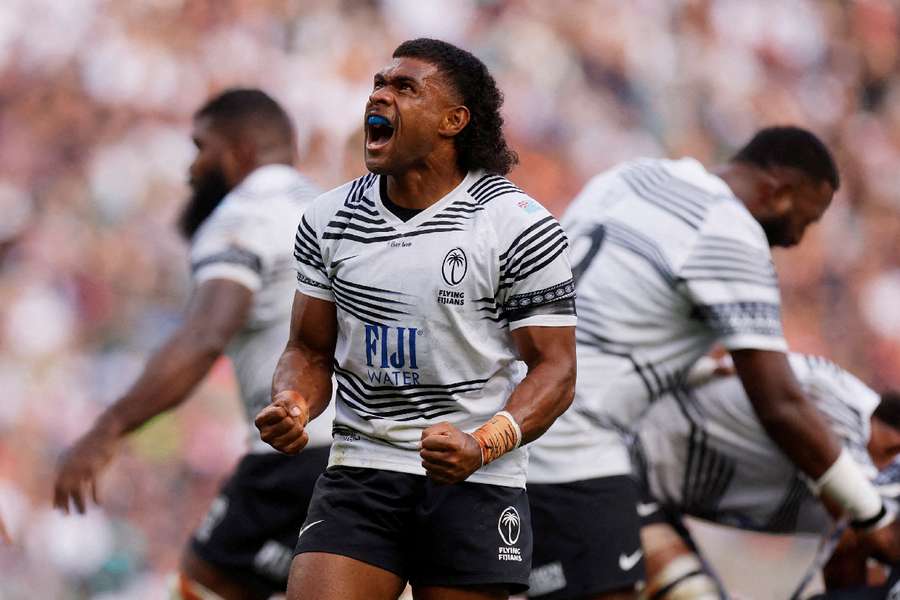Has the Rugby World Cup been ruined by early seedings? - opinion

The World Cup consists of a classic pool stage - four groups of five teams - followed by quarter-finals, semi-finals and then the final on Saturday, October 28th.
There’s nothing wrong with that tried and tested format but thanks to when the seedings were done for the tournament (way back in 2020), the pool arrangements mean that it’s impossible for all of the top teams in the world to reach the semi-final stage.
Currently, there are four nations that are a notch above the rest of the world. That’s the currently top four ranked sides in the world - Ireland, France, South Africa and New Zealand.
There’s not much between those sides and they are almost equal favourites to win the tournament in France. It’s very hard to pick a clear standout from them, although, France probably edges it based on holding the home advantage. This is largely why the tournament is so exciting from a neutral perspective.
However, it just so happens that the hosts and the All Blacks were drawn in the same pool (A) while South Africa and Ireland are both in Pool B. To make matters even worse, the fifth-ranked side in the world - Scotland - is also in Pool B.
But the real killer blow is that Pools A and B cross over in the quarter-finals - meaning the winner of A plays the runner-up of B, and vice versa, in the second stage.
What's the problem?
Well, in short, the problem is that of those top five sides in the world, only two can possibly make the semi-finals as one Pool B side will not progress and the quarter-finals will eliminate two further teams of the five.
On the weaker side of the draw are (world rankings in brackets) - Fiji (7), Australia (9), Wales (10) and Georgia (11) in Pool C and Argentina (6), England (8), Samoa (12) and Japan (14) in Pool D.
There are of course the minnows that fill out the groups as well but let's just put them aside for a second - not out of disrespect, just because it is unlikely that one of the very minor rugby nations will penetrate the knock-out stages.
As an Australian, this oddly lopsided draw is actually good news. The Wallabies are the weakest they have been in years and yet they have a pretty easy route to the semi-finals, in theory. I’m sure England and Wales fans are thinking something similar, too.

However, from a purest point of view, it’s a real shame that we won’t see the four undoubtedly best teams all at the pointy end of things in France.
At least, the winners of the quarter-finals formed from Pools A and B will not meet in the semi-finals, meaning we could still see two of the best teams in the final.
Why has this happened?
World Rugby decided to draw the group stage for the 2023 World Cup all the way back in December 2020 returning to a tradition of doing so the year after a World Cup - the previous edition having been in 2019.
The official World Rugby Rankings were used for the process - that was not controversial. However, due to COVID restrictions having hindered some teams' chances of playing matches in 2020, it was decided that they would use the rankings as of January 2020 for the tournament seedings - further back-dating them, basically.
The alternative was to wait until the next large chunk of international fixtures would be finished the following year but it was deemed that waiting until that juncture to produce the seedings would be too late for ticketing and scheduling concerns.
It just so happens that there have been some seismic shifts in the rankings of the top 10 sides since January 2020.
At that time, England were ranked third in the world, Wales fourth and then (in order) Ireland, Australia, France and Japan, incredibly.
Since then, Ireland and France have shot up into the top four while England, Australia and Wales have all hit terrible runs of form and plummeted down the rankings to rarely-seen depths. On the other hand, Scotland, Argentina and Fiji have greatly improved and replaced them in the top seven.
Of course, no one could have anticipated such a shake-up but it goes to show the problem of drawing the groups so early.
World Rugby chief executive Alan Gilpin has since stated that they will not conduct a draw so far out from a World Cup again.
Is the World Cup ruined?
Purely from the point of view of whether the best teams can compete in the latter stages, in a way, the World Cup has damaged itself as a product thanks to the unfortunate quirk of how drastically the rankings have changed.
I wouldn’t say the tournament is ruined as it will still be a fantastic spectacle of rugby but it's certainly not as good as it could have been.
The biggest losers from this situation are a team like Scotland. They have turned a massive corner in recent years to climb into the top five and now they sit in a group of death where they, South Africa and Ireland must squeeze into two quarter-final berths.
Italy are similarly hard done by, having been drawn into Group A with favourites France and New Zealand.
As mentioned, the big winners of all this are Australia and England. Both sides have frankly fallen off respective cliffs of form in the last year and yet still have a relatively good chance of reaching the semi-finals.

Turning a problem into a positive
It is disappointing the way it’s turned out but there is another way of looking at the problem.
While we are left with an incredibly lopsided draw in which the best teams are piled into Pools A and B, the curious result is that World Rugby have accidentally created more jeopardy in the group stage than if the seedings were done more recently and thus more accurately.
What I mean is that if we had the best teams evenly spread out around the Pools, the make-up of the quarter-finals would be more predictable and there would be fewer competitive first-stage matches.
By having this lopsided arrangement, there are going to be more closely contested pool-stage matches. Instead of just one pool of death, in a way, they are all pools of death!

Where the stronger groups (A and B) will have some of the best sides in the world facing off in blockbuster group-stage matches - such as the tournament opener - the weaker groups will have some equally enticing contests for other reasons.
For example, in Pool C, Australia and Wales face pressure from Fiji, who recently beat England, and Georgia, who beat Wales last year. Suddenly, what looked like a pretty weak group is actually a fairly evenly matched group.
While in Pool D, England might not have as easy a time as first thought, either. They are not the best team in their group with Argentina the top-ranked side there and Japan and Samoa could pose serious problems for them, such is their dire state of form.
So, while we might not see the best four teams populating the semi-finals berths we could well see more closely contested matches from the outset and, potentially, more upsets along the way.
It's so rare for the smaller nations to penetrate the knock-out stages at World Cups due to the disparity between the historically better nations and the rest. However, suddenly a golden opportunity has emerged for the likes of Fiji, Georgia, Japan and Samoa to bother the so-called big dogs and sneak into the quarters.
It may not be perfect and it certainly wasn't intentional but it could be lots of fun!
Is the World Cup ruined? Far from it! Bring on the drama, I say.


